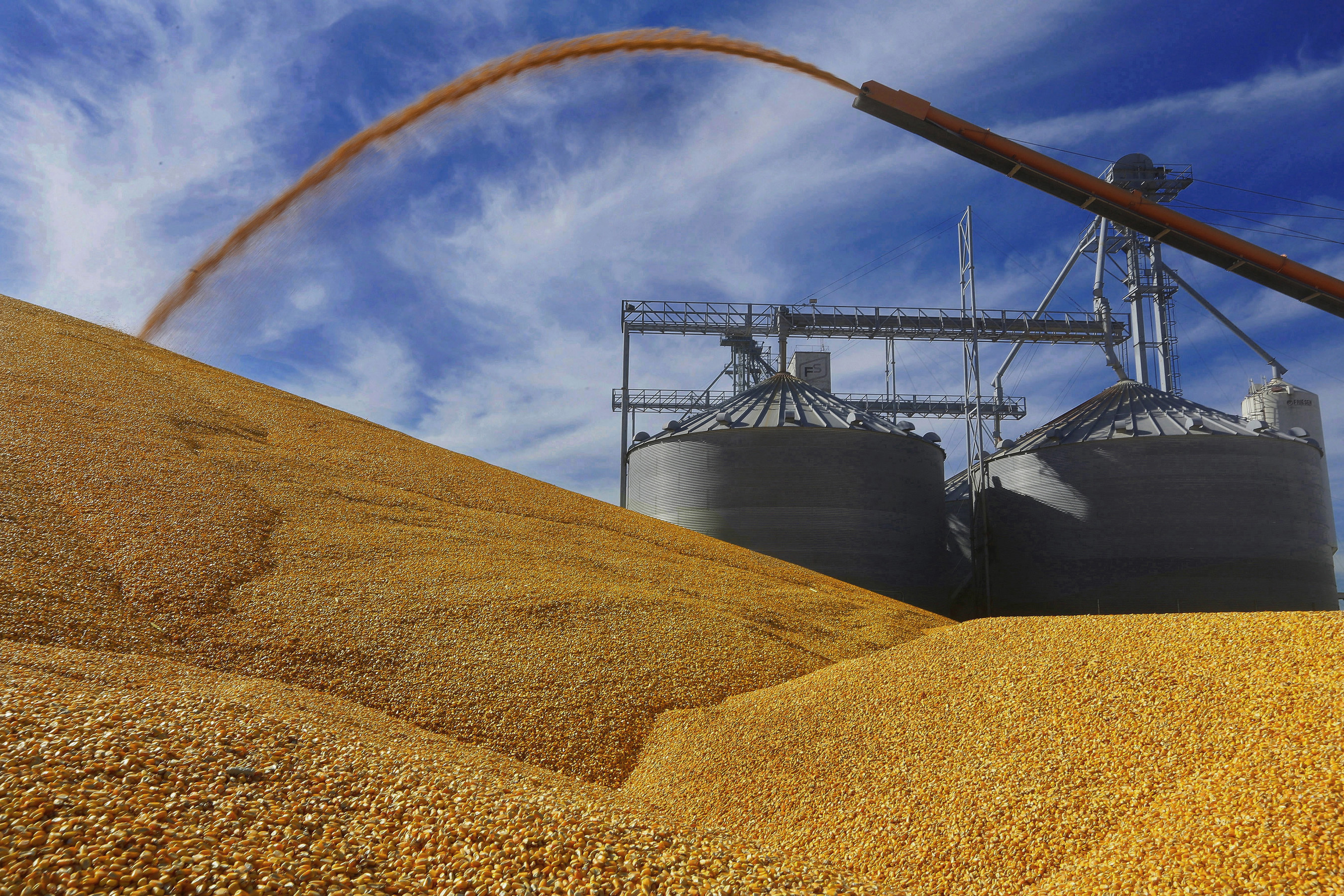
SACRAMENTO, the United States - Filled with unsold soybeans, rust-red grain bins have become an unexpected landmark across the US Midwest, a consequence of the US tariff war.
As demand from China evaporated, small farmers in the United States have been pushed into financial distress, marked by rising bankruptcies and unprecedented debt levels.
In the first half of this year, small-business bankruptcies filed by farmers reached the highest levels since 2020, according to a Bloomberg report on Wednesday. The US Department of Agriculture (USDA) estimates farm debt will hit a record $561.8 billion this year.
Higher interest rates, dramatically reduced demand from China, and US President Donald Trump's trade war were named by the report as the three main factors leading to the crisis.
In April, the Trump administration introduced what it called "reciprocal tariffs" on Chinese goods. Beijing answered by lifting duties on many US farm products to as high as 125 percent. Within weeks, the Agricultural Transportation Coalition tallied 68 canceled vessel departures and 9,000 metric tons of US wood pulp stranded offshore.
Although Trump later scaled back in May his "reciprocal" levy on Chinese imports to 30 percent, and China reduced its duties on many US food products, it was too late for many farmers. They were already suffering from months of canceled orders, rising debt, and new bankruptcies.
ALSO READ: Mexico offers US an alternative to tariff hikes on Mexican goods
Farmers have been further squeezed by competition from South American producers, such as Brazil and Argentina, who faced no similar tariff trouble and have taken over much of the market share once dominated by US exporters.
Trade data compiled by logistics firm Datamar showed that Brazil now supplies 75 percent of China's soybean imports, while the United States has seen its share plummet to just 17 percent.
In June, Brazilian shipments to China reached 9.73 million metric tons, compared with 724,000 tons from the United States. This shift has exacerbated financial woes in rural communities, especially for smaller farms.
Bankruptcy filings have surged. Court filings summarized by the Farm Bureau show 259 Chapter 12 cases from April 2024 through March 2025, a 55-percent increase year on year. The Federal Reserve Bank of Chicago reported that 4.3 percent of farm loans now display "major" or "severe" repayment problems, the worst since 2020.
Although the US government attempted to offset some of the damage with a 23 billion-dollar Market Facilitation Program, many farmers have reported that the payments were insufficient to cover their losses.
Despite efforts to revive trade relations, experts warn that rebuilding these ties will be difficult. Investigate Midwest, a nonprofit news website based in Illinois, quoted North Dakota State University professor Sandro Steinbach as saying that broken trade relationships rarely snap back to earlier levels.


